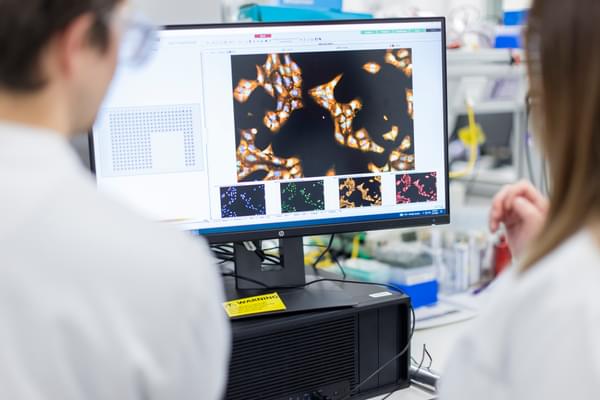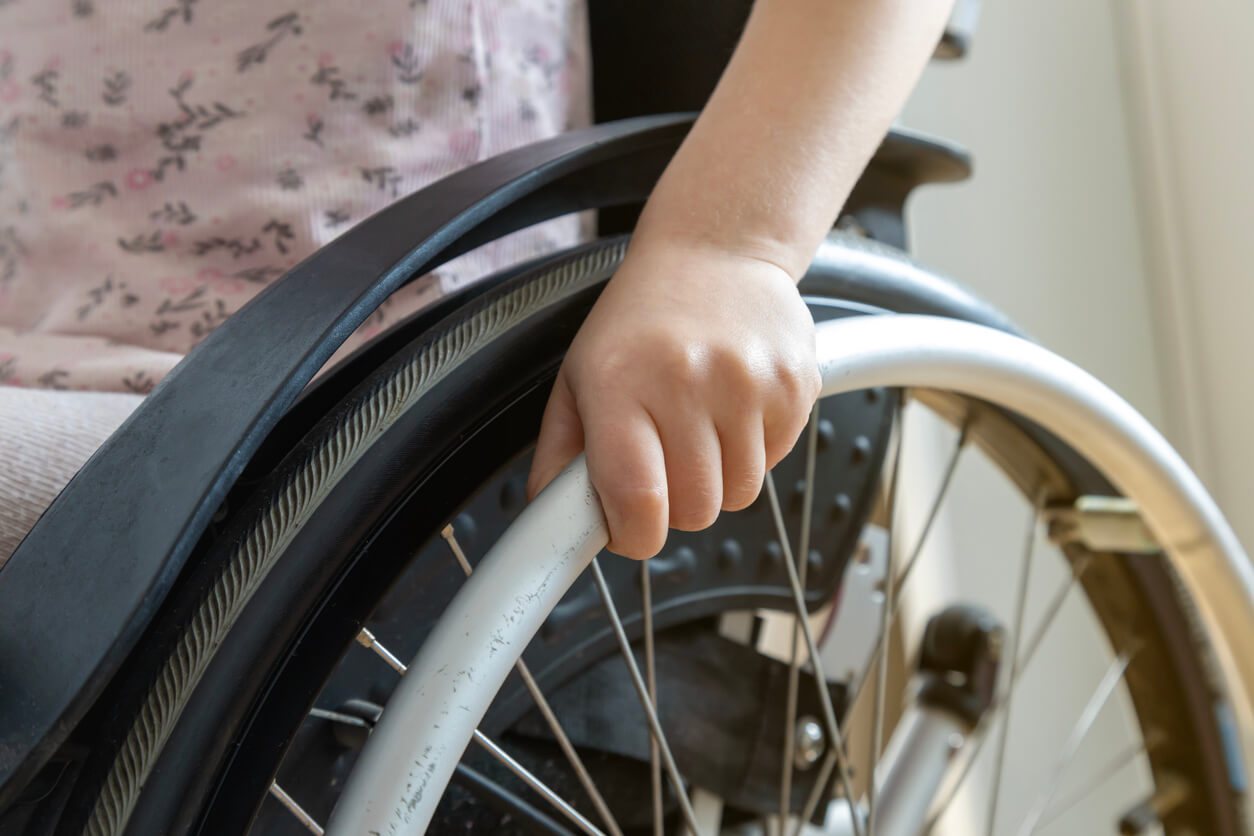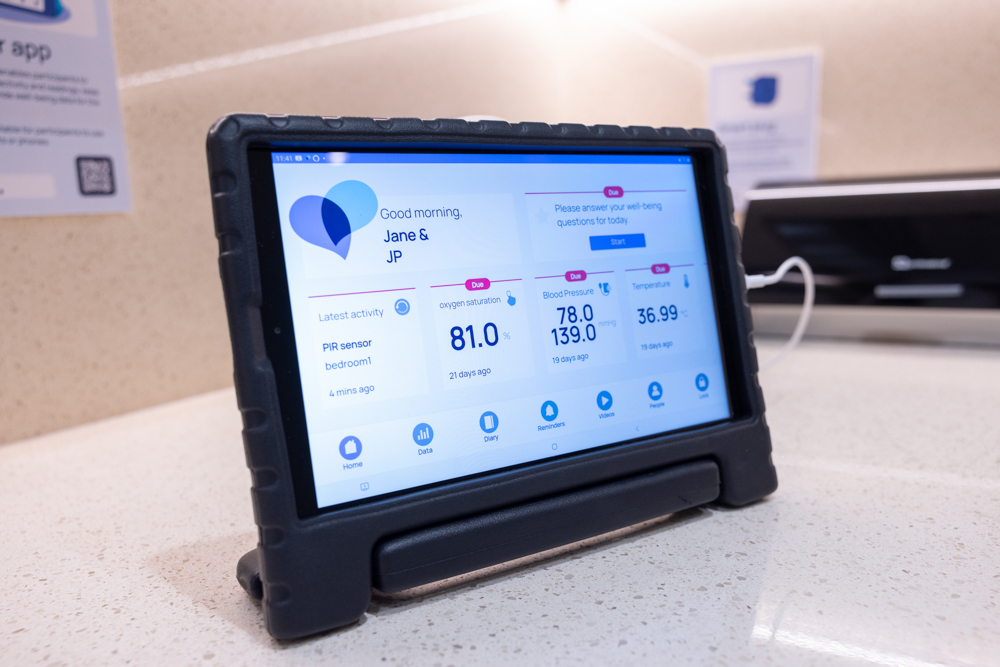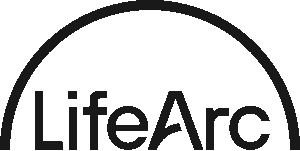Funding: The MND translational research fund
A joint fund created by LifeArc and the Motor Neurone Disease Association (MND Association) and later joined by the My Name’5 Doddie Foundation. Each partner contributed £0.5 million, bringing the total funding available to £1.5 million.

About the call
There are no effective treatments for patients with motor neurone disease (MND). To address this, LifeArc and the MND Association created the joint fund with the aim of accelerating promising, translational research projects from across the UK and Republic of Ireland that could develop new treatments or repurpose existing treatments for MND. The partnership was boosted further with the My Name’5 Doddie Foundation adding a further £0.5million to the available funding.
The joint funding scheme supports treatment-focused, milestone-driven medical research projects that are on the translational pathway. We hope that these projects will generate valuable outcomes that can secure follow-on funding (such as additional translational funding or partnering with/licensing to industry) to support continued development of a therapy for MND and progression towards clinical trials.
Funding available
The fund is now closed to new applications.
Application requirements
We expect to fund up to five high-quality projects of up to three years’ duration and costing a maximum of £500,000 per project. Funding will be tied to milestones and subject to the milestones being achieved.
Successful applications will:
- seek to develop a therapeutic intervention to address the need for more effective treatments for MND
- have a strong scientific rationale
- be a target-driven, with milestones and a credible delivery plan
- have a clearly set-out route to MND patients
The following activities are eligible for support:
- developing candidate therapeutic entities (e.g. drug discovery)
- pre-clinical testing of novel therapeutic entities in vitro or in vivo
- pre-clinical validation for existing therapeutics repurposed for MND
- early-phase clinical trials (phase 1/2) of novel therapeutic entities
- early-phase clinical trials of existing therapeutics repurposed for MND
Treatment types eligible for support from the scheme include small molecules, peptides, antibodies, gene therapies (including antisense oligonucleotides), cellular therapies, vaccines and regenerative medicine.
The following activities are not eligible for support:
- fundamental or investigative research that does not clearly link to the development of a therapeutic for MND
- studies where the primary purpose is to investigate MND disease mechanisms
- projects focused on developing and testing diagnostics or devices for MND
- projects focused on developing palliative care
- late-phase clinical trials (as likely to be beyond the funding limit)
You can find more information about where this scheme fits within the wider translational funding pathway below:
Application eligibility
Projects must be led by research-active academics or clinicians based in the UK or Republic of Ireland with relevant expertise and who will be actively engaged in directing the project. Lead applicants may only submit one application for this call. Collaborations with industry and other academic partners are strongly encouraged where relevant to the project.
Application support webinar and deadline
The MND Association and LifeArc ran an online webinar in May to provide further information about the call.
It took the form of a workshop for researchers looking to register their interest and write an application. Applicants were initially required to submit an online form by 10 June 2021.
The webinar can be viewed here.
Application process
The fund is now closed to new applications.
Applications were evaluated to assess the scientific rationale, feasibility and fit. Applications judged to be suitable at that stage were invited to a 1:1 pre-application meeting with the grants team to discuss project details in greater depth and provide a chance for the grants team to supply additional guidance.
After the 1:1 pre-application session, and providing an application was judged to be within remit, applicants were invited to submit a full application using a form provided by the grants team.
Submitted full applications will undergo external peer review and further review by a Research Advisory Panel (RAP) made up of experts from academia and industry. Full applications will be in open competition with other full applications successfully submitted to the call. Final funding decisions will be made by the RAP and funding decisions are expected to be announced in January 2022. Successful projects funded by the scheme would be expected to start in spring/summer 2022.
What are the criteria for funding?
For applications to be funded they must:
- seek to develop a therapeutic intervention to address the need for more effective treatments for MND
- have a strong scientific rationale
- be a target-driven, milestoned project with a credible delivery plan
- have a clearly set-out route to MND patients
- be led by research-active professionals (academic or clinician) based in the UK or Republic of Ireland
- cost no more than a maximum of £500k and be no more than three years duration
How many projects do you intend to fund?
We hope to fund a small number of high-quality projects (4-5). Total project costs should be realistic to match the level of work to be performed, and where possible costings should competitive. Please note that applicants can only apply for direct costs of research.
Can I apply in collaboration with industry or other academic partners?
Funding is aimed at research-active professionals (academics or clinicians) and funding support will be awarded to the lead applicant’s academic institution.
Collaborations with industry and other academic partners are welcomed where relevant to the project.
The use of contract research organisations (CROs) is acceptable providing the work to be completed by a CRO is justified and could not be completed at a lower cost by applicants or would not add significant value to the project (e.g. upskilling or establishing a collaboration within the UK and/or Republic or Ireland).
The exact role of the collaborator/s and confirmation from each collaborator indicating their willingness to participate must be clearly stated in a full application. Collaborations with academic partners or industry based outside of the UK or Republic of Ireland are acceptable, providing the expertise and/or support brought by a collaboration cannot be readily found within the UK and/or Republic of Ireland.
Applicants will need to make a case for any requested funds used to support the activities of an industrial partner and will need to justify why an industrial partner is unable to cover these costs.
Applicants must have plans to put in place a suitable collaboration agreement with an industrial partner or (where appropriate) with other academic collaborators in order to manage services and/or contributions made by collaborators and to appropriately manage any arising IP generated from funded research.
What is the application and assessment process and how long does it take?
Application forms submitted up to the deadline (10 June) online were evaluated to assess the scientific rationale, feasibility and fit to determine if a proposal is within remit. Applications judged to be suitable at that stage were invited to a 1:1 pre-application meeting with the grants team to discuss project details in greater depth and provide a chance for the grants team to supply additional guidance.
After the 1:1 pre-application session, and providing the application was still judged to be within remit, applicants were invited to submit a full application.
Submitted full applications will undergo external peer review and further review by a Research Advisory Panel (RAP) made up of experts from academia and industry. Full applications will be in open competition with other full applications successfully submitted to the call. Final funding decisions will be made by the RAP and funding decisions are expected to be announced in January 2022. Successful projects funded by the scheme would be expected to start in spring/summer 2022.
What are the key deadlines?
The application deadline was 10th June 2021.
The deadline for submitting a full application form to the grants team was 16.00 on 27th August 2021.
We expect to announce funding decisions in January 2022.
What costs can be covered by funding?
This funding is intended to support the key steps required to deliver patient benefit. Applicants can apply for the direct costs of research, for example:
- salaries for research staff (including post-doctoral research associates, research assistants, technicians, statisticians, technologists, methodologists, etc.)
- consumables
- experimental animals
The following are examples of costs that would be considered ineligible:
- salary of the Principal Investigator/team leader
- PhD studentships or Fellowships
- the apprenticeship levy
- any other costs that should be covered by the NHS
Does drug screening come within the scope of the fund?
The joint fund can support projects involving drug screening provided they are focused on developing new treatments or repurposing existing drugs for MND.
Can you fund an early-phase clinical trial?
We may be able to support projects aimed at running early-phase clinical trials (phase I/II), providing the project does not cost more than £500k and has a credible delivery plan.
Does the fund cover research into surgical procedures?
We are not able to support research into various disciplines of surgery. We refer you to the Surgical Research Society (SRS) for sources of funding.
Does the fund cover PhD research?
The joint fund does not directly fund students.
The MND Association has a separate PhD studentship programme. There is usually one application round each year, and full details are available on the Association’s research funding website.
How many times can I apply? What happens if I am unsuccessful?
Lead applicants may only submit one application for this call. Feedback will be provided for funding decisions on all full applications submitted.
Does LifeArc, MND Association or My Name’5 Doddie Foundation expect a share of revenues or IP generated from funding?
Neither LifeArc nor the MND Association will ask for any financial return or intellectual property (IP) from projects supported by the fund, allowing researchers to focus purely on delivering a result that benefits patients.
How will IP need to be managed?
The IP situation must allow the therapeutic in development to be delivered to MND patients so there must be freedom to operate and the opportunity to commercialise if required.
The host institution awarded funding must have ownership over arising IP generated from funded research. Applicants must have suitable plans in place to protect, manage and exploit any arising IP generated from funded research as an appropriate means to achieve benefit for MND patients.
How does the IP situation work where there is an existing collaboration with Industry?
For example, a project collaborating with industry where the academic lab is producing a critical enhancement?
Furthermore, can an industry collaborator have the option to license the foreground IP back from academic and what would be the requirements be for this?
As a philanthropic initiative, the fund is designed to support progression along the translational pathway for promising therapeutic approaches for MND patients that would otherwise not gain the support needed to de-risk the approach. The fund is not designed to subsidise industry research and development.
If requested funds are being used to support work to be performed by an industry collaborator, they can receive funding, but this would be as a sub-contractor and any arising IP/results generated from funded research would need to reside with the lead applicant’s host institution (University/hospital/other academic institution). If the industry collaborator funds their own work, they would own the IP arising from this specific work that may build on existing IP/results generated by the industry collaborator.
Applicants will need to demonstrate they have freedom-to-operate and therefore show they have considered how they will access background IP (e.g. accessing rights to granted patents) required for development of their therapeutic approach. This should include consideration of future development to show that applicants have mapped out an unencumbered route that allows them to ultimately deliver the therapeutic approach to MND patients. Background IP could be held by an industry collaborator or another third party.
There could be an option for an industry collaborator to partner and license arising foreground IP generated by funded research, if this represents the best route for future development. Equally, applicants need to ensure there is freedom to explore other options for further development and/or commercialisation so that results/IP generated from funded research can be maximally exploited to bring therapeutic approach closer to MND patients.
If possible, we encourage you to work with your technology transfer office (TTO) to consider industry collaborations and management of IP. Otherwise, please do get in contact if you have any queries around industry collaboration and IP.
Are matched or in-kind industrial funds welcomed?
Matched funds or in-kind support from industry is welcomed. Please explain what in-kind funds, support or contributions are being provided by an industry collaborator. Applicants must have suitable plans in place to appropriately manage the contribution made by a collaborator and to appropriately manage any arising IP generated from funded research (e.g. a collaboration agreement).
Can we have an international laboratory as a co-applicant?
The fund aims to support the most promising translational research that falls within remit and where possible, funders would like to support collaborations that help to build skills/resource within the UK and/or Republic of Ireland research community. We are happy to accept collaborations with industry or other academics (e.g. co-applicants) who are based outside of the UK or Republic of Ireland, provided that this is the best route to accessing required expertise/resources/skills for the proposal (eg., leveraging an existing, productive collaboration would be acceptable).
Applicants must have plans to put in place a suitable collaboration agreement with an industrial collaborator or (where appropriate) with other academic collaborators in order to manage services and/or contributions made by collaborators and to appropriately manage any arising IP generated from funded research.
Can LifeArc assist with access to small compound libraries?
Please contact the grants team if you are considering approaching LifeArc with a request to access compound libraries.
There is a separate process for applying to LifeArc to request access to compound libraries and separate procedures at LifeArc for evaluating a request. If deemed appropriate, the grants team would direct a request towards this process to discuss in more detail the proposed use of compounds, the application and evaluation process, and requirements for a library share (e.g. does the requesting academic group have the necessary facilities and expertise to properly utilise and manage a shared compound library). We would aim to do this at the 1:1 pre-application meeting stage when it is clearer that a proposal with a library share request is likely to be suitable for the funding call.
LifeArc and/or the MND Association may also be able to signpost applicants to potential industry partners to discuss access to relevant compound libraries. Again, we would aim to this at the 1:1 pre-application meeting stage if appropriate.
Can LifeArc act as a potential partner for an application? In particular, to help develop more potent versions of a small molecule of interest.
Please contact the grants team if you are considering approaching LifeArc as potential collaborator for an application. In this scenario, there is reasonable potential for a conflict of interest, and this would need to be discussed.
There is a separate process for researchers wishing to approach LifeArc as a collaborator for a drug discovery project and for LifeArc to decide whether an approach is likely to be feasible and fit with internal research activities.
How will awarded funding be managed for a successful application? What are the reporting requirements?
Funding support will be awarded to the host institution. Continued funding will be subject to the achievement of the corresponding milestone objective.
Awardees are required to provide an update report on a quarterly basis from the project commence date.
How will milestones be managed?
Presumably, projects can’t commit funds for activities beyond current milestone until it is approved by funders. How do you see milestone review working and on what timeline?
Milestones are primarily a tool for translational researchers to measure the progression of their project, keep their project focused and on-track, and to manage risk.
Awardees will be expected to provide an update on project progress on a quarterly basis from project commencement date. This will help the grants team to ensure the project is on-track to meet the next milestone. Wherever possible, we encourage awardees to contact the grants team as early as possible if progress suggests a milestone will not be met.
The grants team will work closely with awardees throughout the project term to keep their project on-track and to meet milestones. The grants team will also help awardees to work through issues they may encounter along the way and ensure contingency plans are available if milestones are not going to be met. Please note that proper consideration of projects risks and ways to mitigate risks will be an important aspect of a full application to ensure that applicants have carefully thought about contingency plans in advance. We are aware that translational projects may be subject to change, and we may be able to accommodate change providing it is justified.
What happens in the event of delays in progressing and completing the project?
The grants team will work closely with funded projects throughout the project term to ensure the project commences as planned and all milestone objectives are met. The grants team will work with the awardee to address any issues and make best use of resources to work towards the best possible outcomes for MND patients.
Contact us
In submitting your personal data via this form, you consent to being contacted via the details provided so that your enquiry can be responded to. If you would like your data to be removed, please email dataprivacy@lifearc.org.
Please see our Privacy Policy in relation to the personal data you submit to us through this page.
This site is protected by reCAPTCHA and the Google privacy policy and terms apply.
Latest news
-

LifeArc Pathfinder Award recipients uncover genetic cause of severe nerve condition in children
-

LifeArc and Genetic Alliance UK launch a new report calling for the acceleration of research and development (R&D) for rare diseases
-

Innovative home monitoring service aims to improve care for patients with dementia
